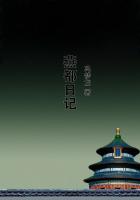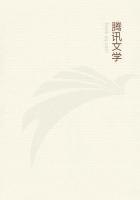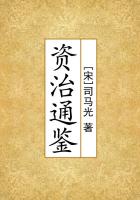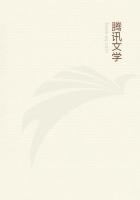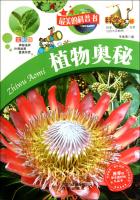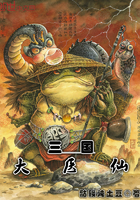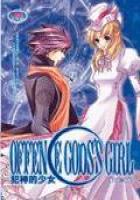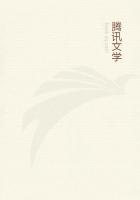THE OLD COUNT, whose hunting establishment had always been kept up on a large scale, had now handed it all over to his son’s care, but on that day, the 15th of September, being in excellent spirits he prepared to join the expedition. Within an hour the whole party was before the porch. When Natasha and Petya said something to Nikolay he walked by them with a stern and serious air, betokening that he had no time to waste on trifles. He looked over everything to do with the hunt, sent a pack of hounds and huntsmen on ahead to cut off the wolf from behind, got on his chestnut Don horse, and whistling to the dogs of his leash, he set off across the threshing-floor to the field leading to the Otradnoe preserve. The old count’s horse, a sorrel gelding, with a white mane and tail, called Viflyanka, was led by the count’s groom; he was himself to drive straight in a light gig to the spot fixed for him to stand.
Fifty-four hounds were led out under the charge of six whippers-in and grooms. Of huntsmen, properly speaking, there were taking part in the hunt eight men besides the members of the family, and more than forty greyhounds ran behind them, so that with the hounds in leashes there were about a hundred and thirty dogs and twenty persons on horseback.
Every dog knew its master and its call. Every man in the hunt knew his task, his place, and the part assigned him. As soon as they had passed beyond the fence, they all moved without noise or talk, lengthening out along the road and the field to the Otradnoe forest.
The horses stepped over the field as over a soft carpet, splashing now and then into pools as they crossed the road. The foggy sky still seemed falling imperceptibly and regularly down on the earth; the air was still and warm, and there was no sound but now and then the whistle of a huntsman, the snort of a horse, the clack of a whip, or the whine of a dog who had dropped out of his place. When they had gone a verst, five more horsemen accompanied by dogs appeared out of the mist to meet the Rostovs. The foremost of them was a fresh, handsome old man with large, grey moustaches.
“Good-day, uncle,” said Nikolay as the old man rode up to him.
“All’s well and march!…I was sure of it,” began the man addressed as uncle. He was not really the Rostovs’ uncle, but a distant relative, who had a small property in their neighbourhood.
‘I was sure you couldn’t resist, and a good thing you have come out. All’s well and quick march.” (This was the uncle’s favorite saying.) “You had better attack the preserve at once, for my Girtchilk brought me word that the Ilagins are out with their hounds at Korniky; they’ll snatch the litter right under your noses.”
“That’s where I’m going. Shall we join the packs?” asked Nikolay.
The hounds were joined into one pack, and the uncle and Nikolay rode on side by side.
Natasha, muffled up in a shawl which did not hide her eager face and shining eyes, galloped up to them, accompanied by Petya, who kept beside her, and Mihailo, the huntsman and groom, who had been told to look after her. Petya was laughing and switching and pulling his horse. Natasha sat her raven Arabtchick with grace and confidence and controlled him with an easy and steady hand.
The uncle looked with disapproval at Petya and Natasha. He did not like a mixture of frivolity with the serious business of the hunt.
“Good-day, uncle; we’re coming to the hunt too!” shouted Petya.
“Good-day, good-day, and mind you don’t ride down the dogs,” said the uncle sternly.
“Nikolenka, what a delightful dog Trunila is! he knew me,” said Natasha of her favourite dog.
“In the first place, Trunila’s not a dog, but a wolf-hound,” thought Nikolay. He glanced at his sister trying to make her feel the distance that lay between them at that moment. Natasha understood it.
“Don’t imagine we shall get in anybody’s way, uncle,” said Natasha.
“We’ll stay in our right place and not stir from it.”
“And you’ll do well, little countess,” said the uncle. “Only don’t fall off your horse,” he added, “or you’d never get on again—all’s well, quick march!”
The Otradnoe preserve came into sight, an oasis of greenness, two hundred and fifty yards away. Rostov, settling finally with the uncle from what point to set the dogs on, pointed out to Natasha the place where she was to stand, a place where there was no chance of anything running out, and went round to close in from behind above the ravine.
“Now, nephew, you’re on the track of an old wolf,” said the uncle; “mind he doesn’t give you the slip.”
“That’s as it happens,” answered Rostov. “Karay, hey!” he shouted, replying to the uncle’s warning by this call to his dog. Karay was an old, misshapen, muddy-coloured hound, famous for attacking an old wolf unaided. All took their places.
The old count, who knew his son’s ardour in the hunt, hurried to avoid being late, and the whippers-in had hardly reached the place when Count Ilya Andreitch, with a cheerful face, and flushed and quivering cheeks, drove up with his pair of raven horses, over the green field to the place left for him. Straightening his fur coat and putting on his hunting appurtenances, he mounted his sleek, well-fed, quiet, good-humoured Viflyanka, who was turning grey like himself. The horses with the gig were sent back. Count Ilya Andreitch, though he was at heart no sportsman, knew well all the rules of sport. He rode into the edge of the thicket of bushes, behind which he was standing, picked up the reins, settled himself at his ease in the saddle, and, feeling that he was ready, looked about him smiling.

